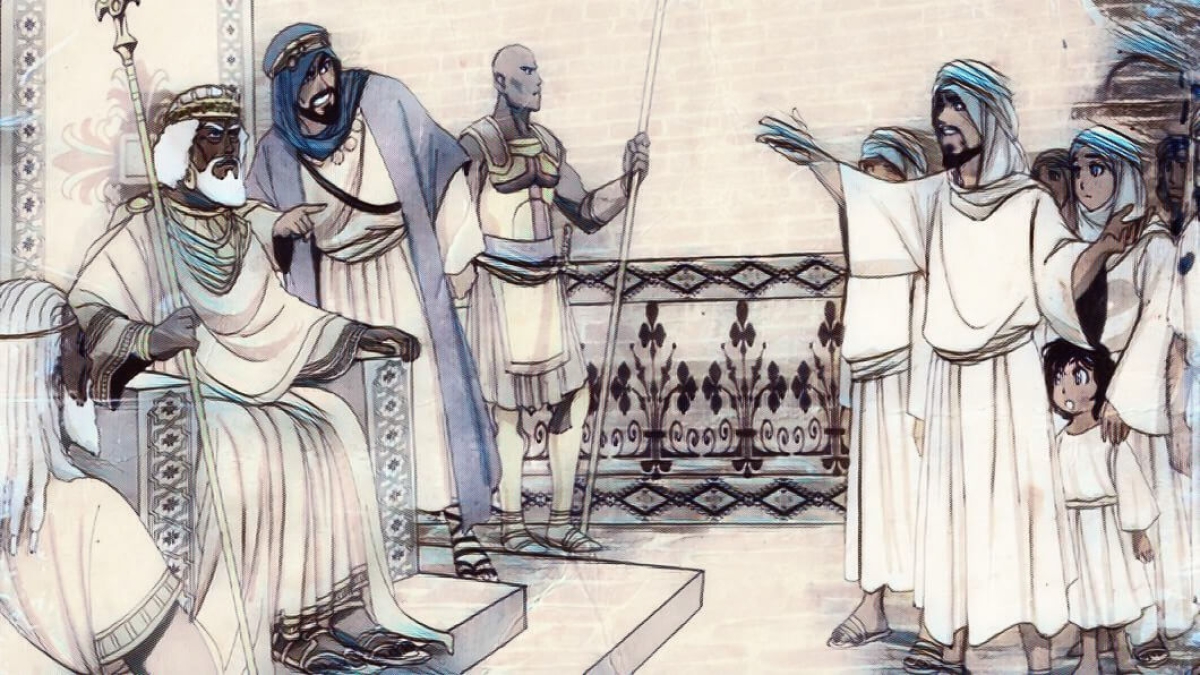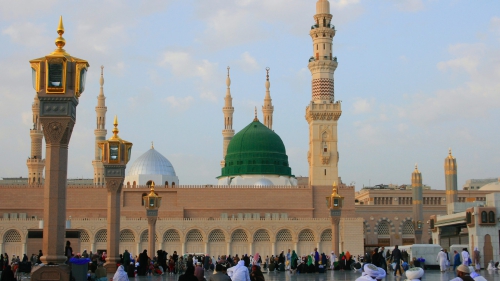What did Jafar say to the Christian Ruler?

Some of the major aspects of the mission and method of Prophet Muhammad are eloquently presented in a speech that one of his companions, Jafar ibn abi Taalib, made to the Christian ruler of Abyssinia in Africa in the year 616 CE. Jafar was the spokesman of a group of early Muslims who had sailed across the Red Sea and sought asylum in Abyssinia from the persecution of the pagan Makkans:
"O King," he said, "We were a people steeped in ignorance, worshipping idols, eating the flesh of dead animals, committing abominations, neglecting our relations and ill-treating our neighbors, and the strong among us would oppress the weak.
"We were in this state when God sent to us a messenger from among us, whose descent and sincerity, truthfulness, trustworthiness and honesty were known to us.
"He summoned us to worship the One True God and to renounce the stones and idols we and our fathers used to worship apart from God.
"He ordered us to speak the truth, to fulfill all that is entrusted to us, to care for our relatives, to be kind to our neighbors, to refrain from what is forbidden and from bloodshed.
"He has forbidden us from engaging in obscene and shameful acts, from speaking falsehoods, from devouring the property of orphans and from vilifying virtuous women.
"He commanded us to worship God alone and to assign no partners unto Him, to pray, to pay the purifying tax and to fast.
"We deemed him truthful and we believed in him, and we followed the message he brought to us from God..."
From Jafar's speech on the mission and method of the Prophet, we see that the first thing he stressed was the worldview of Tawhid, the worship of the One True God. To be on the straight and natural way, the human being's first duty is to gain or regain a correct knowledge of and belief in God. From this knowledge, he will come to accept the wisdom and authority of God. From this will spring correct action.
As an indication of this method of the Prophet in bringing about individual and social transformation, his wife Aaishah is reported as saying that the Prophet did not start by telling people not to drink wine and not to commit fornication and adultery. He started by telling them about God and the Hereafter until they had a firm belief in them. It is only then he told them not to drink or commit adultery and they obeyed him. "Had he started by telling them not to drink wine or not commit adultery; they would have said, 'We will never abandon them?"
From Jafar's speech, we learn that the Prophet encouraged all the natural moral virtues such as truthfulness, kindness, generosity, and justice. And he condemned all the naturally repugnant vices such as false speech shamelessness, adultery and fornication, ignorance, and oppression.
There is also the testimony of Jafar on the truthfulness of the Prophet. Both before and after he became a prophet, Muhammad had the unchallenged reputation of a person who was always truthful and trustworthy. For this, he was known as As-Saadiq and Al-Amiin respectively.
In fact, mission and method fused in the Prophet since we are told by Aaishah, may God be pleased with her: "His character was the Quran." To reject the Prophet
is to reject the Quran and to reject the Quran is to reject the human being's only authentic source of Divine guidance.
The importance of the Quran and the example of the Prophet Muhammad plays a vital role in forming a valid and satisfying worldview for the human being in whatever time or place he or she may live. Since the Quran is the final and complete message of God to humanity and since there will be no prophet after Muhammad,
it is especially important for people everywhere to discover or rediscover the meaning and relevance of the Quran to their lives. Whether you live in the north or the south, the east or the west, whether you live in the so-called developed and advanced world or the underdeveloped and impoverished world, whether you are a male or female, young or old, the Quran has a message for you. In fact, it is the message for you.
The Quran stresses the Oneness of God and the duty of the human being to acknowledge and worship God alone. If we approach the Quran with sincerity it reveals the age old questions about the nature of the human being, the purpose of his life and the various choices and destinies open to him. In other words: Who are we? What are we doing here on earth? And where do we go from here?
(Adapted from the book "Islam the Natural Way" by Abdul Wahid Hamid)
Topics: Dawah (Outreach), Seerah Values: Guidance, Truthfulness
Views:20222
Related Suggestions
I give this article 10 stars. It is an excellent article, heartfelt and simple. It is concise and to the point on the method and message of Prophet Muhammad (saw). Very insightful indeed.

















